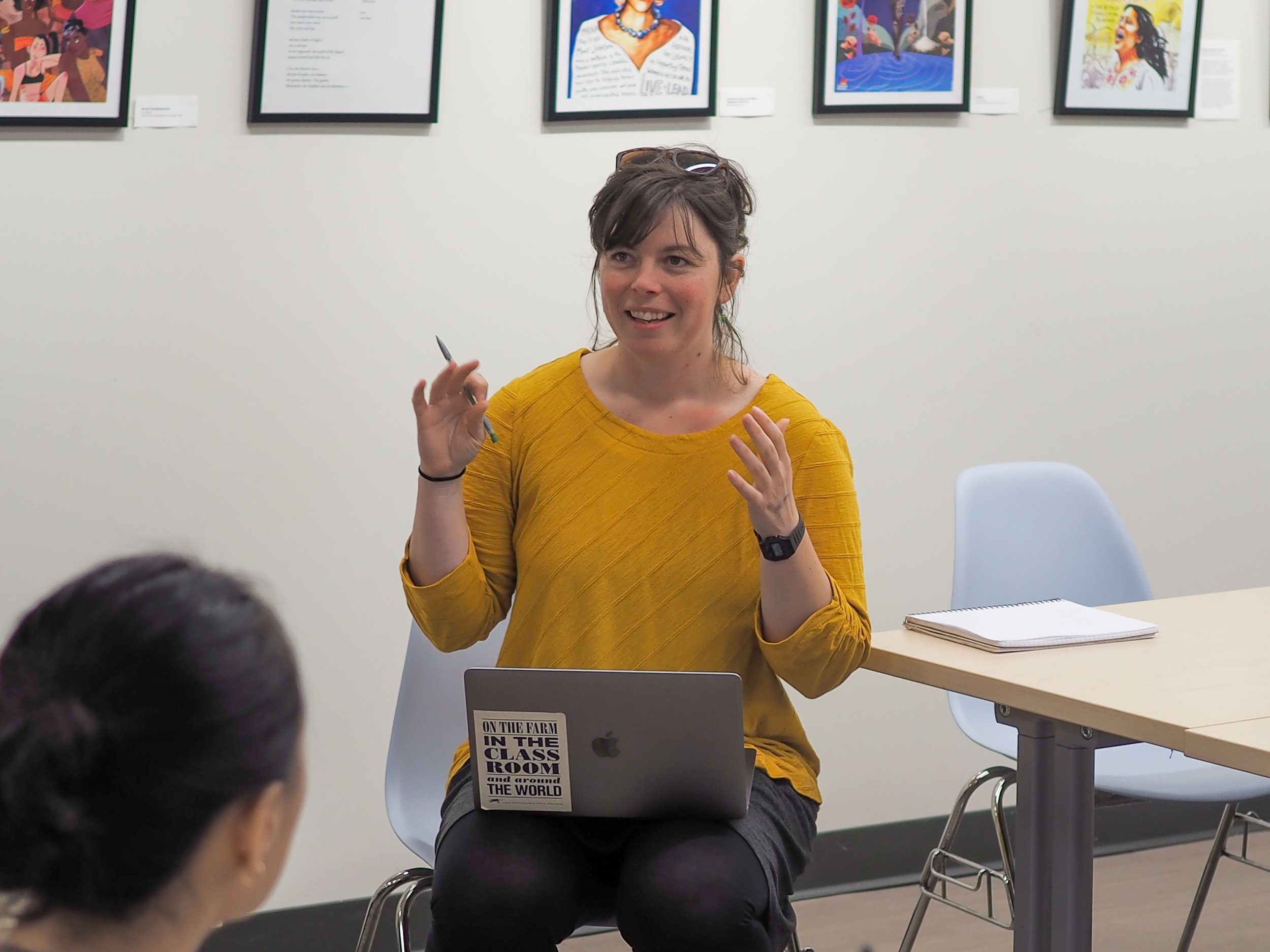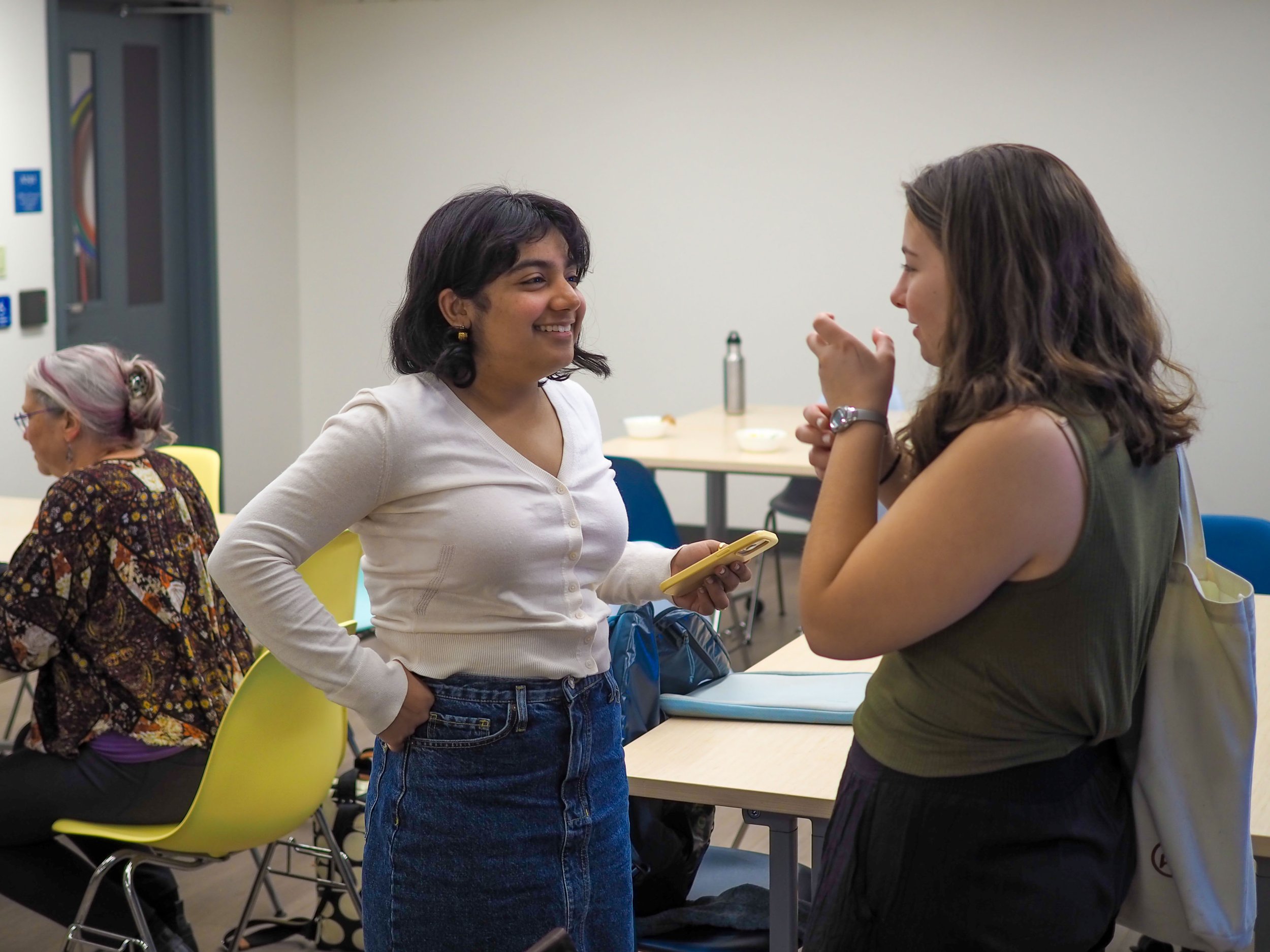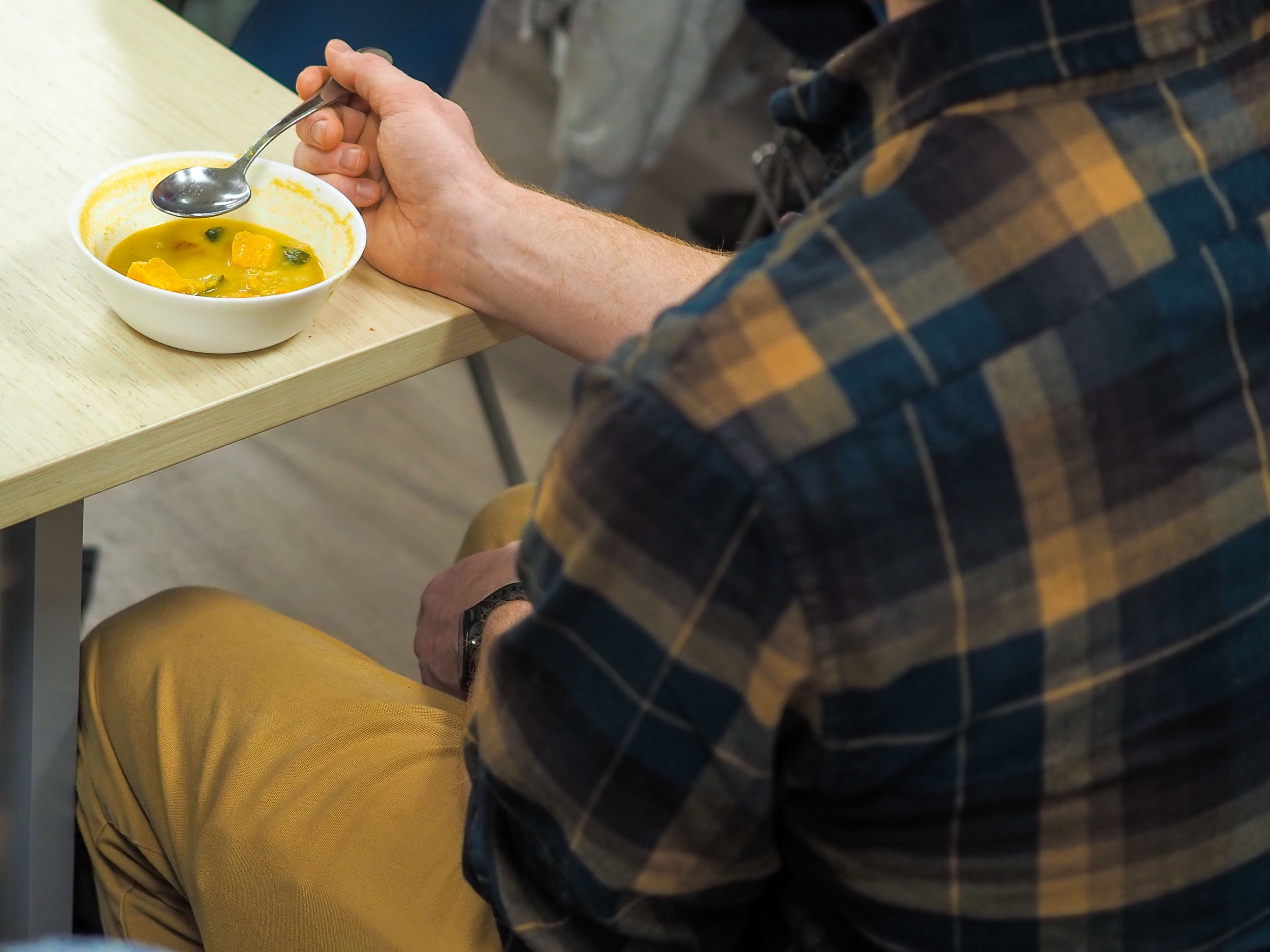


Yale students gathered over bowls of warm sweet potato soup last Friday for a knead 2 know from Katie Michels MESc '23, MBA '24. Michels spent last summer driving around Vermont as a Global Food Fellow, interviewing both conventional and organic livestock farmers about their relationships with the land. Michels positioned her interviews in the context of longstanding tensions between local farming and environmental communities over water quality and other issues. Farmers’ perspectives are often silenced or marginalized, but Michels wanted to give those perspectives their due, asking weighty questions like “What does stewardship mean to you?” and “Why do you manage your land in the ways that you do?”
The answers she received were as varied as the farms she visited. Michels said it was difficult to draw themes from her 21 semi-structured interviews, but she identified a few cross-cutting motivations underpinning her subjects’ land management practices. Many farmers cited ecological incentives: this grass keeps the songbirds coming back, or this crop keeps carbon in the soil. Others referenced a dedication to their community or expressed a desire to raise their children on a farm. Farmers of all backgrounds and beliefs displayed a strong independent streak. As one of them told Michels, “I think the decision to farm was that I didn’t have to apologize for my lifestyle… that it was defensible.”
Although Michels aimed to interview an even mix of conventional and organic farmers, she found that conventional farmers were much less willing to speak with her, perhaps because of the intense media scrutiny commodity farmers often face, in contrast with the valorization of small-scale, direct-market operators. Among the five conventional farmers she interviewed, a focus on feeding people was a consistent theme. One conventional farmer said she wouldn’t adopt organic practices because she wanted to be able to sell her ground beef at five dollars a pound—to ensure that “more than just the college professors can access the food.” Michels described how conventional farmers are constrained by markets. Many of them use ecologically-sensitive techniques, but choose not to sell into the organic market because of the challenges of obtaining certification and the downward price pressure in the industry. “We have a country that doesn’t pay very much for food, and that comes on the backs of farmers,” Michels noted.
Certain limiting factors also kept reappearing in Michels’ conversations. The weather was intense last summer, and the labor market was tight. Farmers told Michels that even if they offered employees twice as much as they paid themselves, they couldn’t get enough applicants. Knead 2 know attendees also asked questions about the role of technology in land stewardship. Michels mentioned that the Natural Resources Conservation Service (a technical assistance agency at the U.S. Department of Agriculture) has been pushing farmers to implement expensive, tech-driven solutions. Farmers face a difficult decision: these innovations would reduce labor expenses, but create a long-term dependence on technology companies. At the same time, Michels highlighted the ways in which farmers have adapted to a changing tech world. Almost everyone she interviewed used smartphones to help manage their farms, for example.
Michels hopes to share her findings with technical assistance providers and policymakers. She is partnering with the American Farmland Trust to do a larger survey focused on similar questions. We thank Michels for her willingness to share her findings with us, and hope future Global Food Fellows take inspiration from her thoughtful approach to her research. Photos from the event can be found here.
Join us at future winter knead 2 knows at 12:30 PM at the Office of LGBTQ Resources (135 Prospect St). We’ll be back outdoors at the Yale Farm after spring break.
